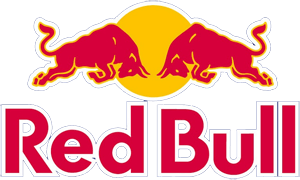Date: 18th June 2014
Hi Ryan,
This is an interesting question (question below), thanks, mind if I strip it down a bit and use some form of my response on my blog? In any case, short answer below, and keep on getting out, say hello out there!
I’d re-frame your question as, “Is it better to work an office job where you can train at night, or a physical labour job where you get stronger during the day but find it difficult to train at night?”
Physical load is load, and if you’re working physical labour all day that’s a load on your body. It will help you generally be stronger (as long as it doesn’t injure you, lift and move stuff as properly as you can). I find when working physical–or any job–that I get better at working the job with time, but it’s rough at first to have any energy left in the evening to do anything else. A lot of the fatigue in any job is more mental than physical, and that mental fatigue can be trained as well as physical fatigue. For example, if you train yourself to come home from work, eat 1000 decent calories, and then go do something physical that is what your body and mind will be able to do. If you come home and train yourself to eat 500 calories of junk and then sit on the couch with the remote that is what you’ll get good at it…
I never rock climbed harder than when I was working 40 hours a week as a magazine editor. I found it relatively easy to train at night and on the weekends. When I was a raft guide, working construction or painting houses I was often too thumped to train well at night, but then I had HUGE blocks of time where I went climbing four to six days a week for months. Without that technical base I would not have been able to climb as hard as I did while working a job… Mountaineering is a little different in that it is less technical in some ways, but more in other less tangible skills.
The biggest determination of performance in the mountains is not “training” but mountain competence, and the ability to move well in the terrain. The more time someone can spend in the mountains and at the crags, even hiking in rough terrain or even up a trail, the better he or she will perform in the mountains. Fitness certainly counts a lot, but a sort of fit mountaineer who is good on his feet will kick ass on an uberfit mountaineer who is not good on his feet. Being both is ideal, but if you can gain technical proficiency and mountain sense with a solid but not special fitness level then you will be in a place to succeed.
I see a lot of emphasis on the physical side of training for the mountains right now, and fitness is good, but beyond a certain base level it’s not physical fitness that determines success in the mountains. It’s the ability to read the weather, be in the right place to avoid rockfall, understand the movement of the sun and how it will effect your travel during the day, build solid anchors fast, move competently and with safety on third class terrain, rappel without turning your ropes into a clusterfuck, and generally move like an animal at home in the mountains and not a stumbling novice that determines success. All of these skills can be trained, and are far, far more important than the amount a climber can deadlift or the number of thrusters someone can do. Yet I see many people who could be outside getting better at moving chucking weights around in the gym and calling it “training…” It’s not doing much useful. Here in Canmore spending an hour hiking up a local peak with a pack, or an hour building anchors, would be far more beneficial if the absolute time available is only an hour.
The less time an athlete has to train the more specific that training has to become. If someone wants to run a marathon on five hours of training a week the solution is not to go do squats but to go running. As part of a long-term program a few squats may help, but probably not as much as massage or good running technique coaching or maybe imbalance corrections. Unless you’re a full-time near-pro climber then the benefits of doing stuff other than hiking up hills or climbing or whatever subset of climbing you want to do are pretty damn limited. Chris Sharma doesn’t do deadlifts, nor does Adma Ondra. Ueli Steck does a lot of running up mountains, and onsights 13c when he’s fit. So, if a physical job leaves you too worked to do sport-specific training then it’s no good… If an office job leaves you no time to do your sport then it’s no good…
So, it all ultimately boils down to mountain skills and then being “fit enough” to move well. If the office guy can take a total of two months off to climb mountains like crazy each year and train two hours each night after work by running up a hill behind his house and going bouldering and working on his technical systems and getting a couple of hours a week in the gym max then he’s going to crush guy who works manual labour all day and can throw 12 2x4s over his shoulder at once but doesn’t get outside and go mountaineering very much at all…
What are the “minimum” physical thresholds required for mountaineering? As a very broad response I’d say the ability to hike up 2,000 feet/600M of elevation in an hour while wearing a 20 pound pack, climb 5.5 in mountain boots, and feel comfortable soloing third class terrain for hours. That’ll get you up pretty much anything I can think of. More specific objectives will require more specific skills; if you want to climb rock then rock skills, ice ice skills, etc. Doing a deadlift over your own bodyweight is irrelevant…. Doing more than a few pullups is irrelevant for mountain fitness.
For bigger objectives putting out more energy for more days is relevant, but look at an athlete like Killian Jornet, who just set the speed record on Denali (12 hours round trip). He can do that sort of effort day after day because he trains by doing his sport day after day.
That said, I do believe in training in the weight room, and am a regular there. I’ve written about this in the past, but for me the weight room is my cross-sport, cross-life training zone where I keep my body functional and moving well. I don’t get stronger for my sports in the weight room, I stay functional for life. And I don’t care if my deadlift stays the same, I just want to be able to do the movement technically well and at a standard I feel will leave me well prepared for life. Stronger is not always better past a point; that’s been a hard lesson for me to learn, but an important one.
For you the answer is probably to structure your job and load on that job so that you have blocks of time to get better at climbing in the mountains, and to do the training that will give you the best performances you can.
Maybe not the answer you were looking for, but I hope it helps. Interesting question.
On 2014-06-15, at 1:53 PM, Ryan P. wrote:
From: Ryan P.
Subject: Training for Alpine Climbing
Message Body:
Hey Will,
I always appreciate your blog posts on training tips/advice. Here’s a not so quick question for you:
I feel the modern, high level, weekend warrior climber has become largely represented by the educated, higher income, white collar class. This statement could be altogether wrong, but take note of the “high level athlete” assumption. It has absolutely nothing to do with Marx’s historical dialectic, but concerns differences in climbing specific training strategies between those with physical and non-physical occupations.
For climbers, such as myself, whose work involves hard physical labor ( e.g. Framing, roofing, landscaping), developing a long term training schedule, the physical demands at work must be taken into consideration. Problems arise, as a result, because the work being done, although physically taxing, is next to impossible to quantify. Briefly, how would you suggest factoring this into a long term training plan? Can 8+ hours a day of squats, lifts, and presses, with no particular consistency, become classified as a positive addition to a training schedule. Or is it too erratic to be categorized as useful?
More Importantly, do you think it would be more advantageous to work a a full time occupation with next to zero physical activity, and have more climbing specific training time/energy? If a person wants to climb near their peak fitness, and still have a moderately successful career outside climbing, should they plan on a career in engineering or economics?
Strictly as an example, let’s say a person wants to climb Denali’s Cassin ridge, fast and light, in alpine style. I’d assume he/she would want to focus on climbing moderate technical terrain quickly and high cardiovascular output for extended periods of time. Assuming work days cannot be completely classified as “rest days” and both weekend days are spent as long days in the mountains, without even considering weekday evening training sessions, this leaves zero rest days and, I can attest, leads to serious physical fatigue. Any words/anecdotes of advice, hope, inspiration?
As I previously mentioned, I really appreciate your posts. I have no expectations that you will have time to get back to me. Your practical advice, good attitude and stoke in the Bow Valley is more than sufficient. Peace.
–
This mail is sent via contact form on Will Gadd http://willgadd.com
Posted in: Blog
Very well written, as usual.
And to answer the question i’ll add a keyword “structure”.
You need some kind of structure to get a work-life balance. As an office worker you’ll need an other plan for your training as a physical worker.
I’m an office worker and i use my lunch break for training and i ride with my bike to the office. If i would do heavy work i guess i would skip that and do any other kind of training and use my break to relaxe… so “structure” is the keyword for me…
Office versus manual labor is an easy one for me – I’ve done both: do whatever makes you happier. Life is too short to do work you’re not committed to and passionate about. Being miserable at work in exchange for a few blissful hours/days of climbing seems like a waste of a life.
I work on a forest service hotshot crew, and can see the very interesting effects of extremely intense manual labor on my mountain performance.
The Good
Overall the increase in pure cardio based performance has been huge as one essentially gets 12-16+ hours of base training a day. These benefits are obvious in the winter.
Being pushed to your physical and mental limit quite frequently makes you a lot tougher, always a plus in the mountains. Furthermore, you are used to exerting yourself all day long, days on end.
Carrying a 50 pound pack and a 25 pound chainsaw make any rope + rack feel really light, which makes the approach for the few opportunities of summer alpine rock a breeze.
The Bad
There are times/fires when the workload severely breaks down your body (the extent that the body can eat muscle at times is pretty crazy). This has serious effects on your stoke and can linger months after the season is over.
Technical (in this case rock) climbing ability goes to shit, as rock climbing once or twice a month is terrible for footwork development. More importantly, I feel like I lose my lead head a bit (so much for being tougher).
I personally believe the work has excelled in providing an excellent cardio/musculoskeletal base, that should be exploited through increased focus in sport specific activities such as fast & light travel and technical development.
as someone who has worked construction (electrical so it is kinda wimpy), I must say that Ryan P. has a vocabulary that is well beyond the construction world. maybe canucks are just smarter than yanks and even the canadian construction monkeys speak well. or maybe Ryan P is too smart to work construction. I think that the answer lies somewhere in the middle.
Ryan P., my feeling are that you are too smart for framing. Utilize your smarts for greater goals. Climbing may be your focus now, but I suspect that working life will outlive your climbing life. And after quite a bit of construction, I was done physically and I had it easy as an electrician. construction is a hard long term career.
Try for a university job. Worked out well for Slawinski. (apologizing for spelling errors)
I'm more than happy to hear your thoughts on what I've written. Please note that all comments will be moderated before publishing. Thank you for joining the conversation.



